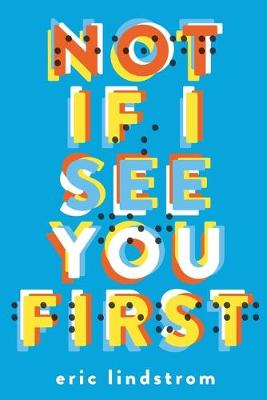Reviewed by Linda on
Not If I See You First was both delightful and sad. Very real, and with a dash of drama thanks to Parker and the way she thought about herself first - like many other teenagers tend to do.
I'm not sure why I kept Not If I See You First for so long on my kindle without reading it - it was as if it was hiding in plain sight! Parker was a very prickly heroine, and some might not enjoy her at all. I found her to be refreshing in some ways, though, because not only was she brutally honest, she was able to deal with the aftermath of her honesty as well. Her life was not an easy one, and I guess that is partly why I was indulgent with her. Also, I think a lot of teens are quite self absorbed and somewhat unable to put themselves in someone else's situation. This is especially true for Parker, as her own situation was so complex it was impossible for her to imagine that other people had their own pains and their own drama.
It's not the first time I read a young adult story with a blind heroine, but I think Not If I See You First made a greater impression on me for several reasons. Parker did her very best to be independent and follow her own dreams. From running in the morning to navigating school mostly on her own. And I found the fact that she was able to ask for help when she really needed it good, too - even if she could be abrupt to the point of impolite when shutting people down when she didn't need their help.
Not If I See You First is a multilayered story, it deals with Parker's disability. And it also deals with grief. And it definitely deals with trust and forgiveness, too. Parker's prickliness could even be a good thing, because her abrasive personality shows that not everybody has to be people pleasers, as she still had friends who stood by her. And those friends were more numerous than she had anticipated when she really needed them. Thus dealing with several important moments in Parker's life, and seeing her coming to the realisation that her friends and acquaintances have feelings too was something I really enjoyed!
Written in first person point of view, from Parker's perspective, and in present tense, I really discovered things alongside Parker. This made me sometimes come to the same conclusions as her, even if I have more experience and should have been able to see things from a different angle. I guess I got so immersed in her I wasn't able to take that step back and be more analytical, and that's a good point in Not If I See You First's favor.
It's a common belief that losing your sight heightens your other senses, and it's true, but not by magnifying them. It just gets rid of the overwhelming distraction of seeing everything all the time. On the other hand, my experience of sitting with Marissa consisted almost entirely of hearing everything her mouth and nose were capable of in sticky detail. That's what unrequited love sounds like to me. Disgusting.
"I only want to help," she says. She sounds like she means it. Like I'm hurting her feelings. But if someone's feelings get hurt when they insist on giving me something I don't want, I don't see how that's my fault. It doesn't get us anywhere, though.
Faith and I don't hang out, mainly because we have almost nothing in common anymore. We cat like we don't get along but we're the opposite of frenemies; we're friends who pretend to be enemies. I guess that makes us enemends.
Reading updates
- Started reading
- 16 January, 2017: Finished reading
- 16 January, 2017: Reviewed
